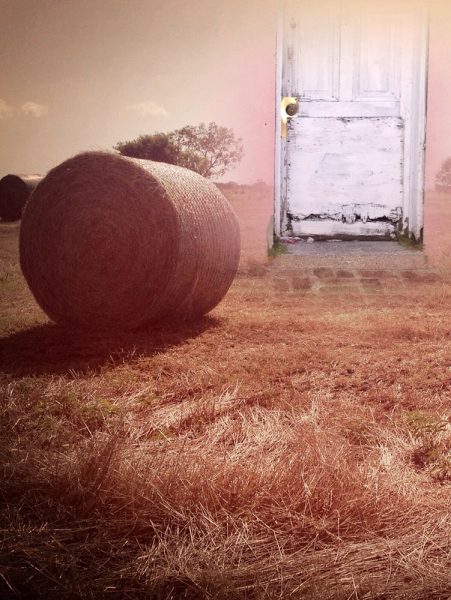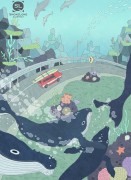I’m struck by the emotional depth of the beekeeper’s character and his feelings about his zombie daughter. Is there anything different about your thinking and writing processes when developing a relationship between the living and the undead than your run-of-the-mill relationship between living characters?
I’ve seen all of The Walking Dead to this point. I’m not particularly in love with zombie narratives. At least, in TWD, emotional resonance often feels lacking, for me. It was important to me that these zombies be different—and, they are, at least how I conceive of them—and that the daughter retain something of humanity in her. I approached the relationship in a similar way as I do with living relationships. Other than her not talking or really feeling, of course. What was important was the relationship between father and daughter, and that I make that as visceral as possible while sort of working in the constraints of what she might be capable of, especially in a short space. This might be trite, but what makes the monster relevant is the overwhelming mirror it shows us.
I’m charmed by the fact that there is one line of dialogue in this story. I could imagine someone in a workshop recommending that you either cut said line or add dialogue in more places. But this very much works for me in this story. Since this line stands out, I’m curious if you see it as a revelation for the beekeeper or simply a habitual thought—or something else?
I’ll say that dialogue in the stories I’ve written this year has become pretty spare. Characters often speak only what they feel they need to say. I think this line is a revelation, and maybe a horrific one, and one spoken mostly to himself. In this story, I was working in a quiet mode of environmental reflection, and the beekeeper is seeing something he has done in his daughter, but also in the land around him. The desperation I intend in that line is part of his realization.
Tell me about your process in arriving at the final image, which for me hits a nice disturbing/cathartic sweet spot. Did you know that was the story’s end immediately after writing that sentence?
I did not know the final image or ending before I arrived there. As I wrote, though, I kept thinking about the way zombie skin/flesh comes off so easily in films and that really informed how I arrived at the specific image. It was important that I get to a place of reckoning between the father and daughter, especially because she can’t speak or emote, and I also wanted something very visceral (though I didn’t know just how visceral until I wrote it). I think the obvious connection to pollen only came after I’d written it, but somehow somewhere in my mind that was really the only ending I could have arrived at.
I’m curious about your relationship to the backstory of these characters and the circumstances that led to the story’s present reality. We get some clues about the past, but the present situation is quickly normalized. Do you know exactly what has happened? Does the beekeeper know exactly what has happened?
I do know about the details of the present. In my mind, these are very different zombies that are meant to be results of something different than the typical origin story. In another version of this story, the beekeeper knows—or, thinks he knows—what has happened, but only through media speculation. That speculation was meant to be the truth, but was maybe too on-the-head for the story.
And now for the obvious question: What should you do if you encounter a zombie?
I actually was just asked this by someone who has no idea this story exists. Hopefully, you’ll have already hidden yourself away in the Northwoods away from population centers before you encounter them (and where there will be ample food sources in terms of hunting). If you encounter my zombies, you’re just going to have to deal with them as grotesque realities. If they’re Romero zombies, though, I guess you would do well to have a tank. Or perhaps Jean Grey superpowers.
Lastly, assuming Facebook is not lying, you’re from Omaha. What would you recommend one do if they had only forty-seven minutes in Omaha? What city are you dying to spend forty-seven minutes in?
If you only have forty-seven minutes in Omaha, you should hit the Slowdown for (part of) a show, and then go next door to the bar that’s modeled after grandfather’s basements, the Trap Room. I would die to spend forty-seven minutes in Tonopah, Nevada, so that I could go to the clown motel there. I missed it the first time. I want to fear deeply.



 The core workshop of SmokeLong Fitness is all in writing, so you can take part from anywhere at anytime. We are excited about creating a supportive, consistent and structured environment for flash writers to work on their craft in a community. We are thrilled and proud to say that our workshop participants have won, placed, or been listed in every major flash competition. Community works.
The core workshop of SmokeLong Fitness is all in writing, so you can take part from anywhere at anytime. We are excited about creating a supportive, consistent and structured environment for flash writers to work on their craft in a community. We are thrilled and proud to say that our workshop participants have won, placed, or been listed in every major flash competition. Community works.